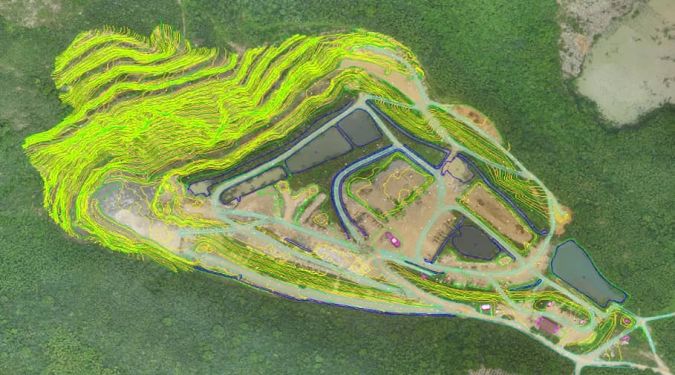Surveying and mapping are an important foundation for the development of a national economy. An accurate understanding of the spatial configuration of a territory and information about its attributes is important for decision-making. The development of drone photogrammetry technology has brought tremendous change to the surveying and mapping industry. Surveyors no longer need to spend a lot of time and energy on field work, as accurate information can be obtained by drone, the results of which surpass more traditional methods. From a financial point of view, the use of drones has significantly improved the return on investment. Drone photogrammetry has gradually become a common measurement method due to its convenience, high accuracy and lower cost.
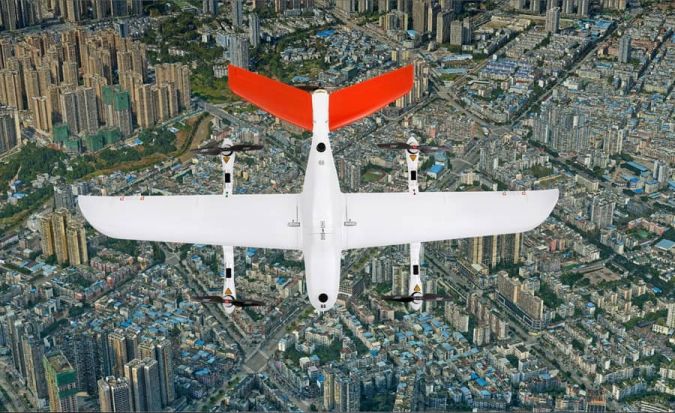
Towards sustainable urban development
Guilin, in China’s Guangxi province, is an important tourist city in southern China, and tourism has become an important part of the city’s planning. In order to have up-to-date data on the evolution of local topography, landforms, houses, roads and other attribute information, the local government conducts a comprehensive survey of the entire area every six months. The Guangxi Guilin Survey and Design Institute Co, Ltd. undertook the project implementation lead.
Technology barriers in digital mapping
Since tourism has become an important part of economic growth, the regular collection of land information is necessary for urban planning. Currently, most land information is collected by manned surveys using GNSS, GIS collectors and satellite images.
The challenges faced by surveying and mapping departments can be listed as follows:
- Significant manpower expenditure - Because the project covers a large area, many surveyors are required to carry out the data collection.
- Long completion time - Surveys conducted by field crews are very time-consuming in terms of data collection in the field and post-processing to obtain useable results.
- Advanced qualification requirement - In order to achieve accurate mapping surveys, all team members must have a solid knowledge of GNSS and GIS technologies.
- Image updates are not always available when needed - Satellite images are not updated in real time, so that the actual site may differ significantly from the reference images obtained earlier for the project.
- Some areas are hard to reach – These areas include rivers, mountains and construction zones, and are difficult to map by on-the-ground teams.
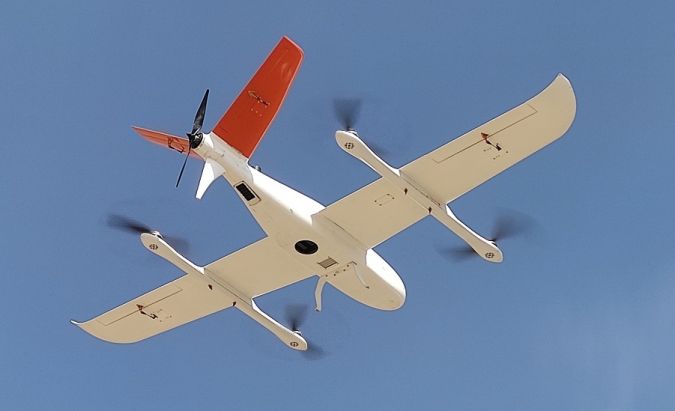
P330 Pro Aerial Orthophoto Solution Advantages
With the constant development of drone technology, unmanned aerial vehicles (UAVs) are now widely used for construction, civil engineering, monitoring and emergency rescue. Combined with aerial photography technology, UAVs become an extremely cost-effective alternative to manned aircraft for activities such as surveying and mapping, mining, construction and infrastructure.
The main benefits include:
- Long endurance
150min. maximum flight time with payload, allowing coverage of a larger area (up to 9km2 at a resolution of 3cm/pixel and with 70% overlap).
- 100 Hz differential module, no ground control points
With the combined use of GNSS RTK positioning, camera offset and CGO GNSS post-processing software, no ground control points (GCPs) were required for this project, saving considerable time and cost.
- High accuracy trajectography and POS (positioning and orientation system) data
Survey-grade GNSS positioning and POS data at the centimetre level provided a horizontal accuracy of 6cm for this project.
- High safety for a secure take-off, flight and landing
Highly automated operation, safety monitoring and self-checking procedures minimize human operating errors and ensure a safe flight.
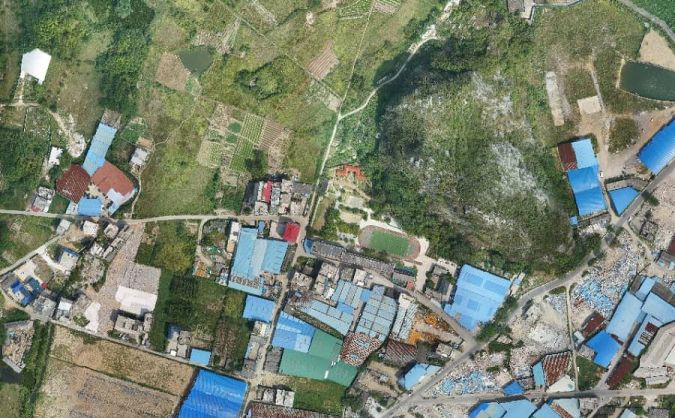
A choice of 2D and 3D mapping outputs
- High-accuracy Digital Orthophoto Maps (DOM)
Each pixel has high-precision horizontal geodetic coordinates from which users can obtain any terrain coordinates directly.
- High-accuracy Digital Surface Model (DSM)
The generated elevation data provides a global view of the terrain.
- High-accuracy Digital Line Graph (DLG)
Post-processed DLGs are widely used for construction planning, resource management and environmental impact analysis.
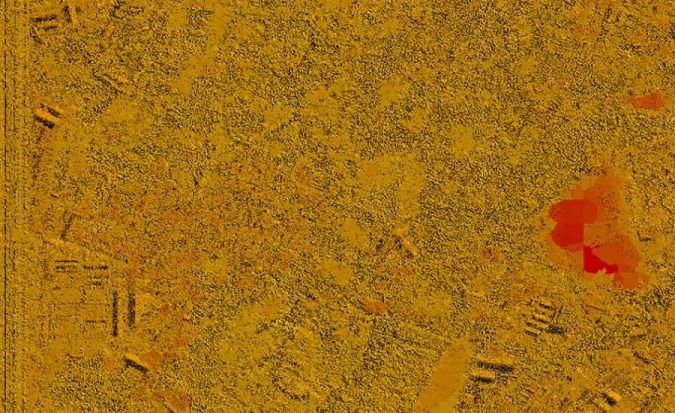
- 3D Photogrammetric Model
3D reality models generated with the use of an oblique camera can be applied for urban, housing, construction and landscaping planning.
- Topographic Map Contour Lines
Generation of contour lines based on Digital Surface Model (DSM) and Digital Terrain Model (DTM).
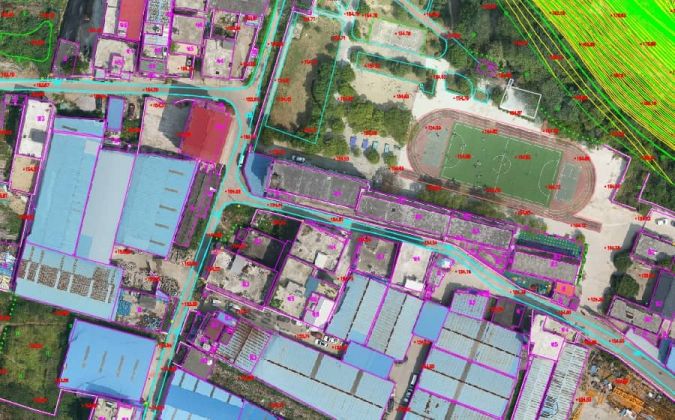
Data accuracy and results
- The flight parameters required for the project were as follows:
Ground sampling distance (GSD): 3cm/pixel
Forward overlap: 80%
Side overlap: 70%
Mapping scale: 1:2000
- The final data accuracy achieved against ground control points:
Horizontal: 6cm
Vertical: 10cm
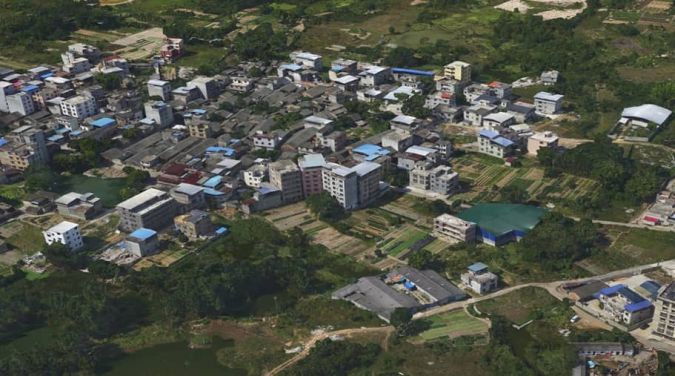
Drone photogrammetry: an obvious asset for urban planning
UAV aerial mapping is a technological breakthrough for sustainable urban planning projects involving multiple dimensions: technical, economic, ecological, social and – more broadly – cultural. The ability of drone mapping to maintain accurate and up-to-date data allows urbanists to think and make cities differently, to create another model of urban planning and development, but also to invent other ways of living and organizing public transportation.
The reliability of the results and the accuracy of the point cloud information confirm the compelling advantages of UAV photogrammetry for large area surveying and mapping projects. In a constantly evolving urban environment, the use of the P330 Pro VTOL drone contributes to sustainable city planning, safe operations for the field crew, reduced workload and labour costs, and an extremely fast return on investment.
